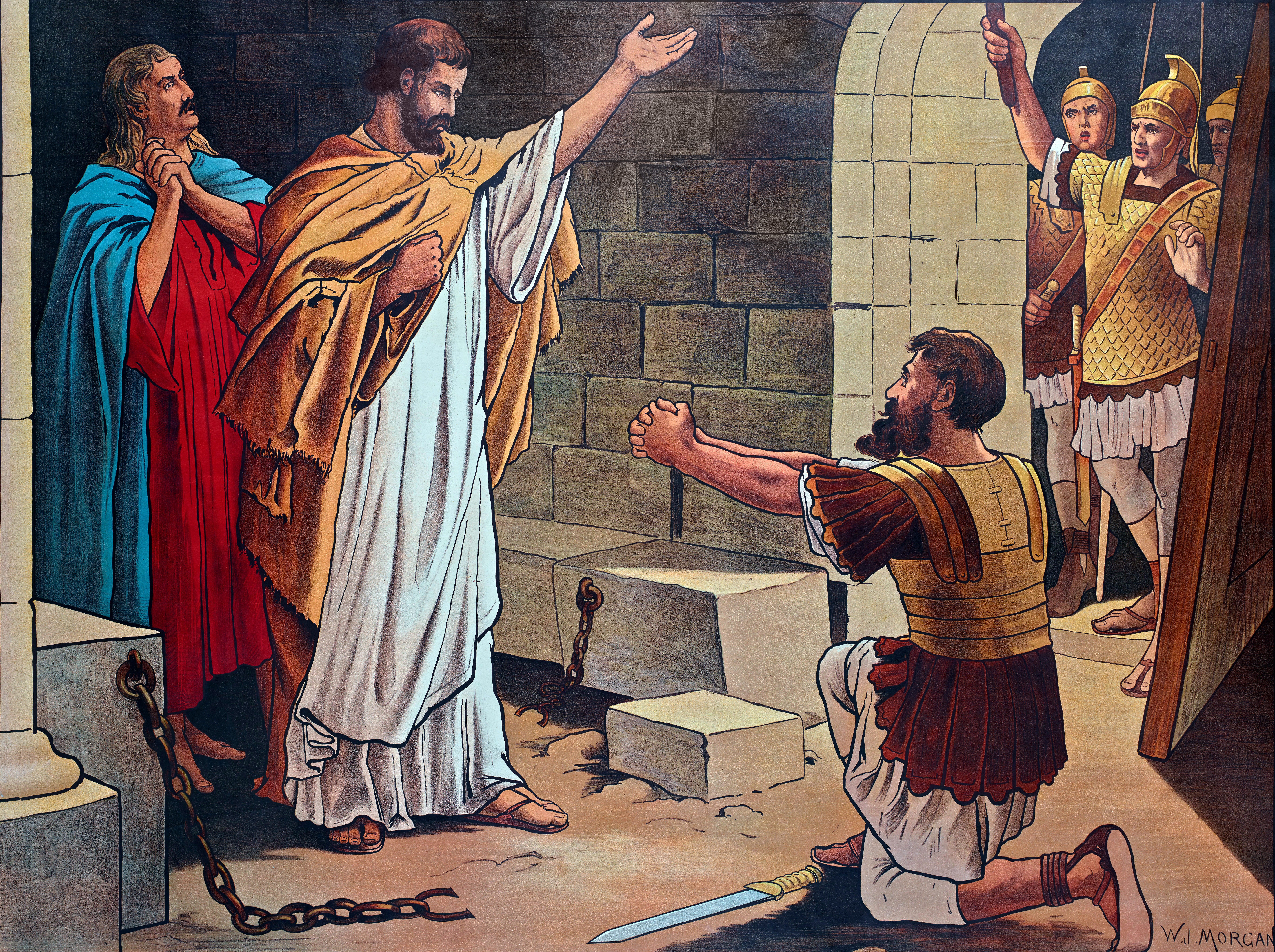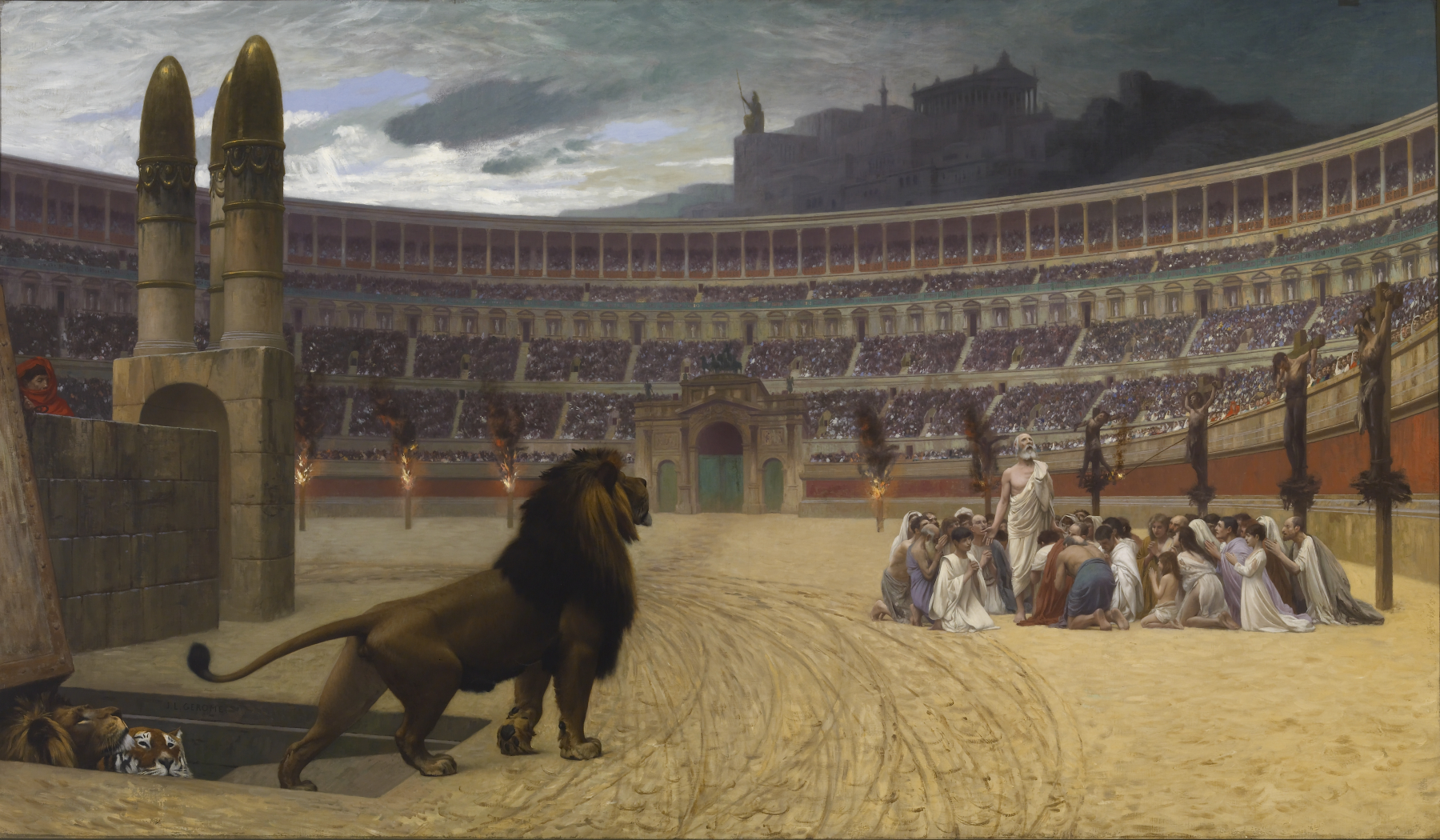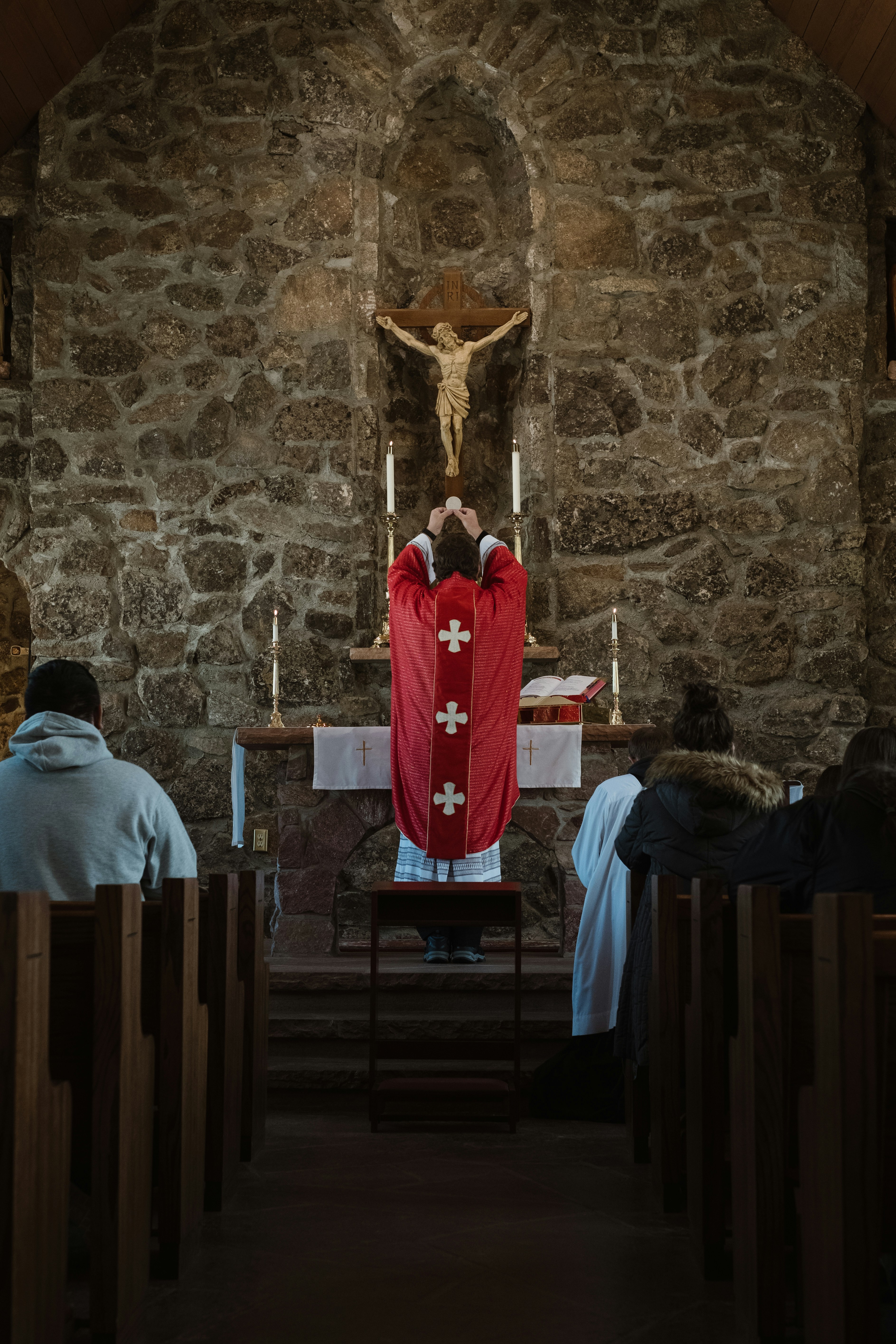Can you believe we still have another week and a half to celebrate the great feast of the Resurrection of Our Lord? We are an Easter people! Even during other liturgical seasons like Advent and Christmas, we are reminded of the reason for His coming. He was born to die and He died to rise. Within the amazing truth of this Paschal Mystery, we delve into the depths of His overwhelming love. We have every reason to celebrate!
Have you ever noticed how little children are so good at rejoicing? Whether it be a princess tea party, a family dance party, or an impromptu “show”, they seem to keep everyone smiling. Their antics are not premeditated, nor are they tainted by complicated innuendos. They simply eat, dance and laugh. We can learn so much from them!
In today’s first reading, Paul invites the Athenians to enter the fold of God’s children. “The God who made the world and all that is in it, the Lord of heaven and earth, does not dwell in sanctuaries made by human hands, nor is he served by human hands because he needs anything. Rather it is he who gives to everyone life and breath and everything. He made from one the whole human race… so that people might seek God, even perhaps grope for him and find him, though indeed he is not far from any one of us.”
Some of Paul’s listeners joined him and became believers, others were left pondering and longing for more and still others scoffed at him and went on their unmerry way. Which category would you fall into? Would you listen and believe with childlike faith? Would his words pique your interest but leave you wanting to hear more before surrendering? Would you scoff at him in disbelief because his words were hard to comprehend? Or would your heart feel like a jumbled ball of conflicting emotions made up of bits and pieces of all three reactions?
Wherever you find yourself, know that Jesus is right there with you and He understands, for He truly “is not far from any one of us”. In the Gospel He states: “I have much more to tell you, but you cannot bear it now.” He knows how much you can bear at this very moment and when you will be ready for more. He knows when to feed you milk and when you are able to digest solid food. (see 1 Cor 3:2) And without fail, the Spirit will guide us to truth. He will take from the Father and the Son and declare it to us, so that we don’t even have to wait until the next life to celebrate, for “Heaven and earth are full of [His] glory.” (Today’s Psalm) Let us rejoice in Him!
¿Puedes creer que todavía tenemos otra semana y media para celebrar la gran fiesta de la Resurrección de Nuestro Señor? ¡Somos un pueblo de Pascua! Incluso durante otras temporadas litúrgicas como el Adviento y la Navidad, se nos recuerda la razón de Su venida. Nació para morir y murió para resucitar. Dentro de la asombrosa verdad de este Misterio Pascual, profundizamos en la grandeza de Su amor abrumador. ¡Tenemos tantas razones para celebrar!
¿Alguna vez has notado como se regocijan los niños pequeños con tanta inocencia? Ya sea una fiesta de té de princesas, un momento de baile en familia o un “espectáculo” improvisado, parecen mantener a todos sonriendo. Sus payasadas no son premeditadas ni están contaminadas por insinuaciones complicadas. Simplemente comen, bailan y se ríen. ¡Podemos aprender mucho de ellos!
En la primera lectura de hoy, Pablo invita a los atenienses a entrar en el redil de los hijos de Dios. “El Dios que hizo el mundo y todo cuanto hay en él, siendo el Señor del cielo y de la tierra, no habita en templos hechos por hombres, ni es servido por mano de hombres, como si necesitara de algo o de alguien; porque él es quien da a todos la vida, el aliento y cuanto tienen. De un solo hombre sacó todo el género humano… quería que lo buscaran a él y que lo encontraran, aunque fuera a tientas, pues en realidad no está lejos de nosotros.”
Algunos de los oyentes de Pablo se unieron a él y se convirtieron en creyentes, otros se quedaron reflexionando y deseando más y otros se burlaron de él y se fueron. ¿En qué categoría entrarías tú? ¿Escucharías y creerías con fe de niño? ¿Sus palabras despertarían tu interés pero te dejarían con ganas de escuchar más antes de rendirte? ¿Te burlarías de él con incredulidad porque sus palabras eran difíciles de comprender? ¿O tu corazón se sentiría como una bola confusa de emociones conflictivas formada por fragmentos de cada una de las tres reacciones?
Dondequiera que te encuentres, sepa que Jesús está ahí contigo y te entiende, porque “en realidad no está lejos de nosotros”. En el Evangelio Él dice: “Aún tengo muchas cosas que decirles, pero todavía no las pueden comprender”. Él sabe cuánto puedes soportar en este momento preciso y cuándo estarás preparado para más. Él sabe cuándo alimentarte con leche y cuándo podrás digerir alimentos sólidos. (ver 1 Cor 3:2) Y sin falta, el Espíritu nos guiará a la verdad. Él tomará del Padre y del Hijo y nos la declarará, de modo que ni siquiera tengamos que esperar hasta la próxima vida para celebrar, porque “La gloria del Señor sobrepasa cielo y tierra”. (Salmo Responsorial) ¡Alegrémonos en Él!
 Tami Urcia is a midwestern gal from a large Catholic family. As a young adulthood she was a missionary in Mexico, where she studied theology and philosophy. After returning stateside bilingual, she gained a variety of work experience, traveled extensively and finished her Bachelor’s Degree at Brescia University. She loves organizing and simplifying things, watching her children play sports, deep conversations with close family and friends and finding unique ways to brighten others’ day with Christ’s love. She works full time at Diocesan in the Software Department and manages the Inspiration Daily reflections. She is also a contributing writer on CatholicMom.com and BlessedIsShe.net.
Tami Urcia is a midwestern gal from a large Catholic family. As a young adulthood she was a missionary in Mexico, where she studied theology and philosophy. After returning stateside bilingual, she gained a variety of work experience, traveled extensively and finished her Bachelor’s Degree at Brescia University. She loves organizing and simplifying things, watching her children play sports, deep conversations with close family and friends and finding unique ways to brighten others’ day with Christ’s love. She works full time at Diocesan in the Software Department and manages the Inspiration Daily reflections. She is also a contributing writer on CatholicMom.com and BlessedIsShe.net.
Feature Image Credit: Ben White, unsplash.com/photos/boy-sitting-on-bench-while-holding-a-book-4K2lIP0zc_k
The views and opinions expressed in the Inspiration Daily blog are solely those of the original authors and contributors. These views and opinions do not necessarily represent those of Diocesan, the Diocesan staff, or other contributors to this blog.


 Deacon Dan Schneider is a retired general manager of industrial distributors. He and his wife Vicki have been married for over 55 years. They are the parents of eight children and thirty-one grandchildren. He has a degree in Family Life Education from Spring Arbor University. He was ordained a Permanent Deacon in 2002. He has a passion for working with engaged and married couples and his main ministry has been preparing couples for marriage.
Deacon Dan Schneider is a retired general manager of industrial distributors. He and his wife Vicki have been married for over 55 years. They are the parents of eight children and thirty-one grandchildren. He has a degree in Family Life Education from Spring Arbor University. He was ordained a Permanent Deacon in 2002. He has a passion for working with engaged and married couples and his main ministry has been preparing couples for marriage.
 Former NPS Park Ranger, Catholic educator, and Youth Minister, Melissa Lucca now spends her days evangelizing family and neighbors as a stay-at-home mom. She holds an MA in Theology from the Augustine Institute and pursues personal study in her spare time. Melissa loves Ignatian Spirituality, Mother Mary, and rock climbing. If you don’t hear her and her kiddo laughing at home, then they are probably out on an adventure!
Former NPS Park Ranger, Catholic educator, and Youth Minister, Melissa Lucca now spends her days evangelizing family and neighbors as a stay-at-home mom. She holds an MA in Theology from the Augustine Institute and pursues personal study in her spare time. Melissa loves Ignatian Spirituality, Mother Mary, and rock climbing. If you don’t hear her and her kiddo laughing at home, then they are probably out on an adventure!
 Kathryn Mulderink, MA, is married to Robert, Station Manager for Holy Family Radio. Together they have seven children (including Father Rob), and eleven grandchildren. She is President of the local community of Secular Discalced Carmelites and has published five books and many articles. Over the last 30 years, she has worked as a teacher, headmistress, catechist, Pastoral Associate, and DRE, and as a writer and voice talent for Catholic Radio. Currently, she serves the Church by writing and speaking, and by collaborating with various parishes and to lead others to encounter Christ and engage their faith. Her website is
Kathryn Mulderink, MA, is married to Robert, Station Manager for Holy Family Radio. Together they have seven children (including Father Rob), and eleven grandchildren. She is President of the local community of Secular Discalced Carmelites and has published five books and many articles. Over the last 30 years, she has worked as a teacher, headmistress, catechist, Pastoral Associate, and DRE, and as a writer and voice talent for Catholic Radio. Currently, she serves the Church by writing and speaking, and by collaborating with various parishes and to lead others to encounter Christ and engage their faith. Her website is 
 Pamela Kavanaugh is a grateful wife, mother, and grandmother who has dedicated her professional life to Catholic education. Though she has done her very best to teach her students well in the subjects of language and religion, she knows that she has learned more than she has taught. She lives, teaches, and writes in southwest suburban Chicago.
Pamela Kavanaugh is a grateful wife, mother, and grandmother who has dedicated her professional life to Catholic education. Though she has done her very best to teach her students well in the subjects of language and religion, she knows that she has learned more than she has taught. She lives, teaches, and writes in southwest suburban Chicago.

 Christine Arata is a San Francisco, California native. She lives a few blocks away from the ocean and a park. She finds nature inspiring. Her cat brings her comfort. She loves being creative not only with her writing but with almost everything, including her home cooking. Her studies in the Catholic faith are ongoing. In 2019, when she discovered St. Hildegard of Bingen was underrepresented by Catholics, she found a purpose. Her latest website, St. Hildegard’s Wisdom features blog posts about all of that:
Christine Arata is a San Francisco, California native. She lives a few blocks away from the ocean and a park. She finds nature inspiring. Her cat brings her comfort. She loves being creative not only with her writing but with almost everything, including her home cooking. Her studies in the Catholic faith are ongoing. In 2019, when she discovered St. Hildegard of Bingen was underrepresented by Catholics, she found a purpose. Her latest website, St. Hildegard’s Wisdom features blog posts about all of that: 
 Deanna G. Bartalini, M.Ed.; M.P.A., is a certified spiritual director, writer, speaker and content creator. The
Deanna G. Bartalini, M.Ed.; M.P.A., is a certified spiritual director, writer, speaker and content creator. The 
 Dr. Alexis Dallara-Marsh is a board-certified neurologist who practices in Bergen County, NJ. She is a wife to her best friend, Akeem, and a mother of four little ones on Earth and two others in heaven above.
Dr. Alexis Dallara-Marsh is a board-certified neurologist who practices in Bergen County, NJ. She is a wife to her best friend, Akeem, and a mother of four little ones on Earth and two others in heaven above.

 Mike Karpus is a regular guy. He grew up in Michigan’s Upper Peninsula, graduated from Michigan State University and works as an editor. He is married to a Catholic school principal, raised two daughters who became Catholic school teachers at points in their careers, and now relishes his two grandchildren, including the older one who is fascinated with learning about his faith. He also has served on a Catholic school board, a pastoral council and a parish stewardship committee. He currently is a lector at Mass, a Knight of Columbus, Adult Faith Formation Committee member and a board member of the local Habitat for Humanity organization. But mostly he’s a regular guy.
Mike Karpus is a regular guy. He grew up in Michigan’s Upper Peninsula, graduated from Michigan State University and works as an editor. He is married to a Catholic school principal, raised two daughters who became Catholic school teachers at points in their careers, and now relishes his two grandchildren, including the older one who is fascinated with learning about his faith. He also has served on a Catholic school board, a pastoral council and a parish stewardship committee. He currently is a lector at Mass, a Knight of Columbus, Adult Faith Formation Committee member and a board member of the local Habitat for Humanity organization. But mostly he’s a regular guy.
